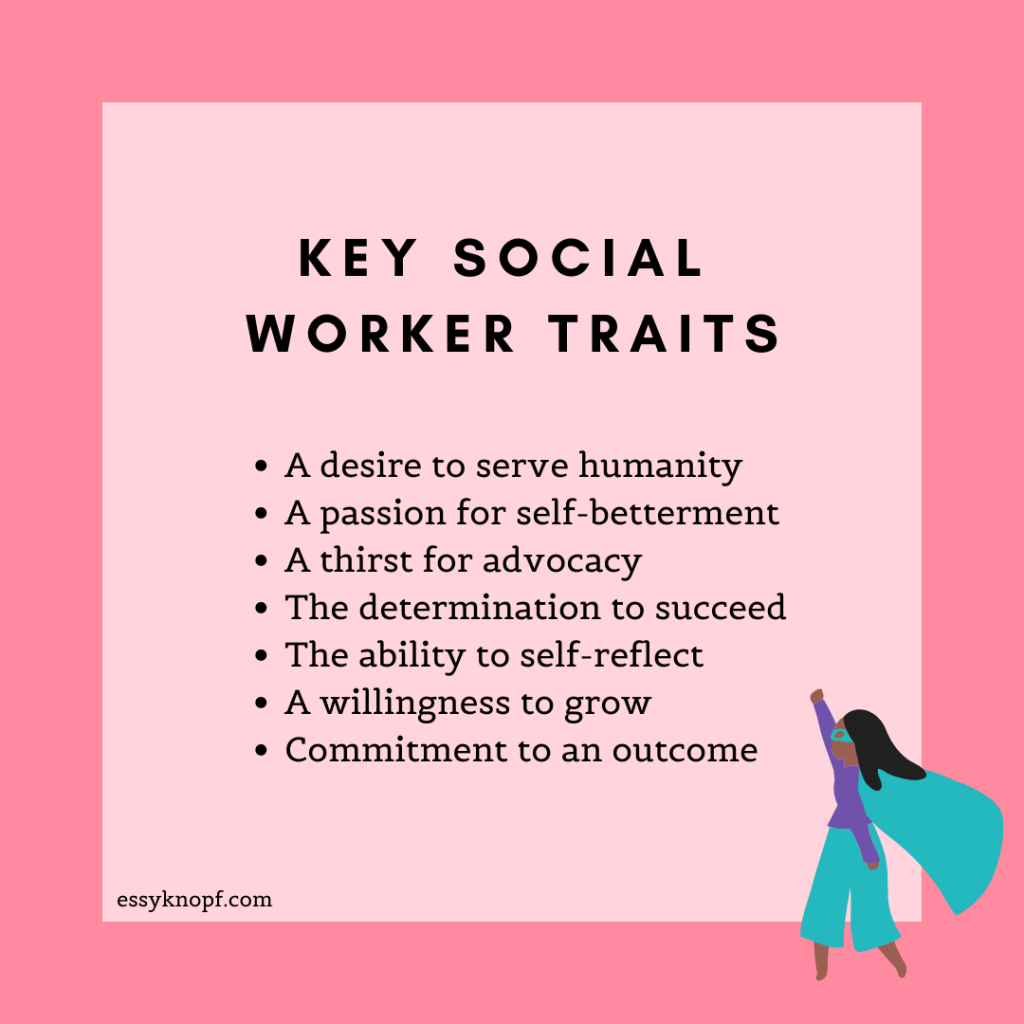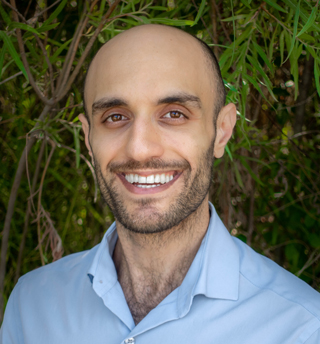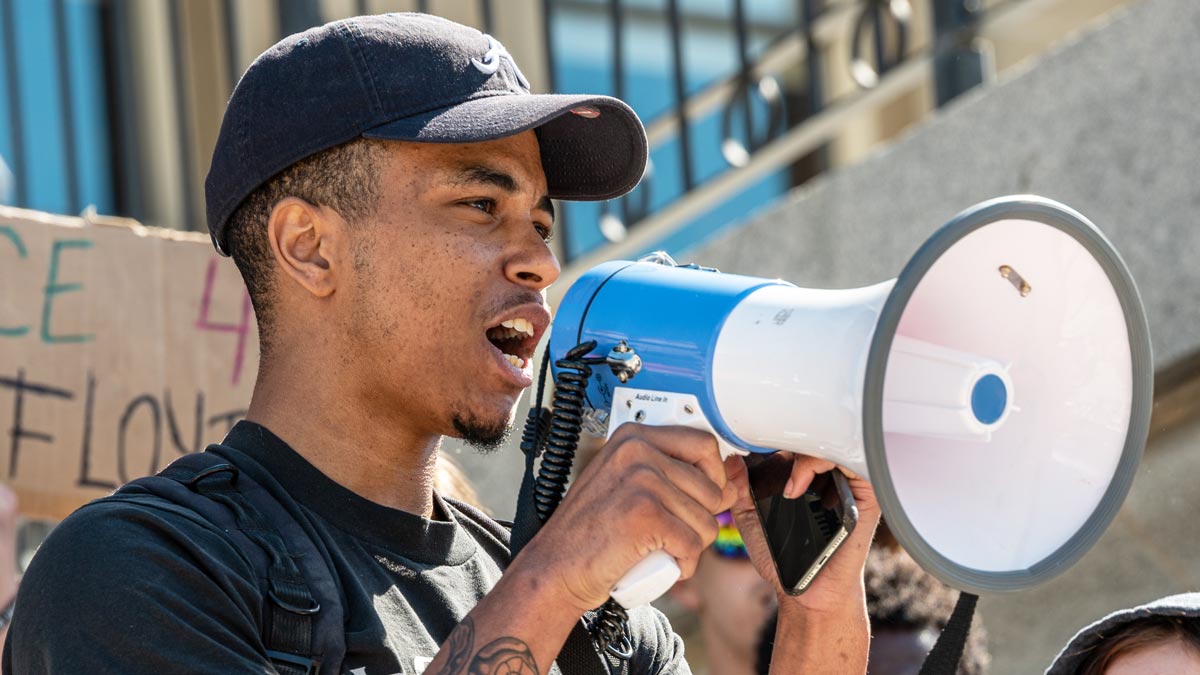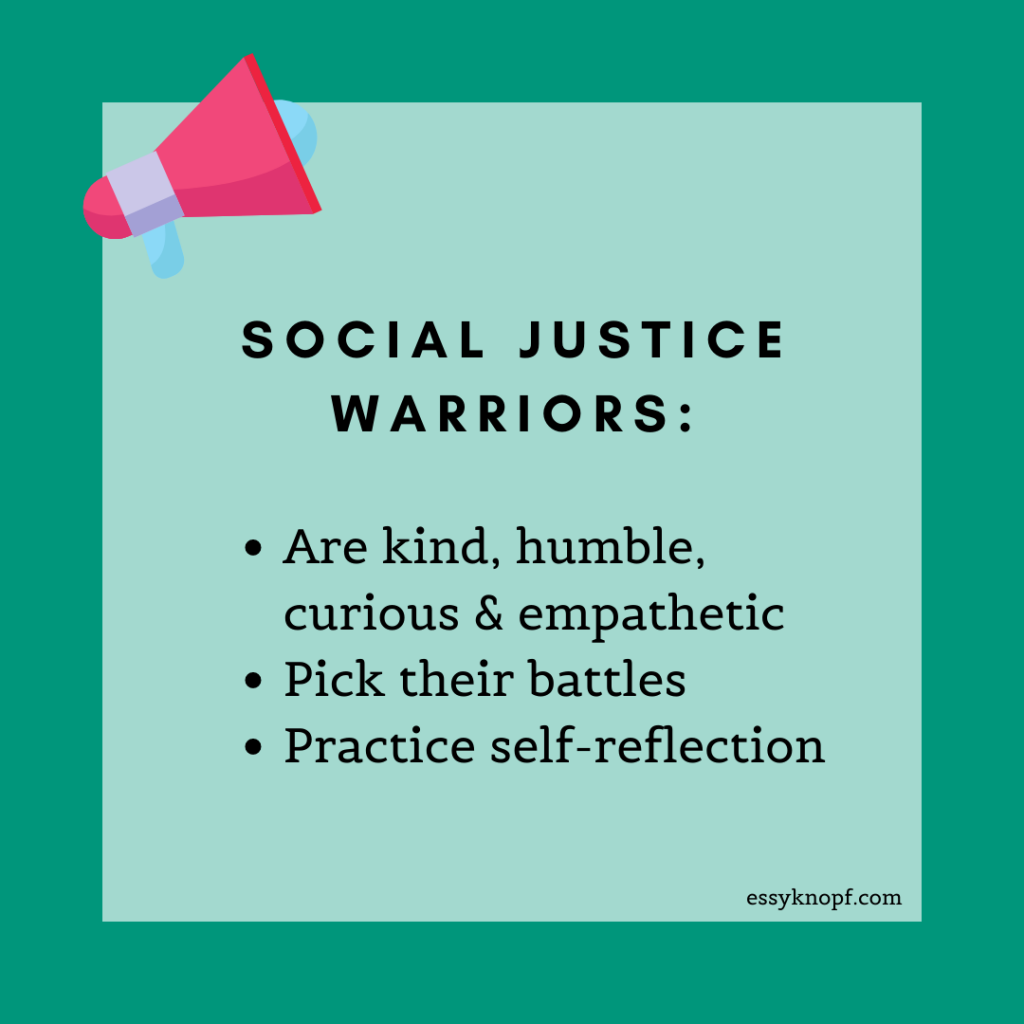Is a career in social work right for you? 7 traits that indicate a personality match
When I was six, I got it into my head that I should try and fix the world. Of course, it would take more than two decades before I realized what I really wanted was a career in social work.
At the time, what interested me most was the idea of being some kind of authority; having the latitude to analyze, diagnose, and treat problems.
Naturally, I concluded that I should become a doctor. It was a conclusion that would prove terribly premature upon my discovering that I had a needle phobia.
The night before I was to receive my first vaccine, I dreamed of fleeing into the bushland behind our family’s home.
In this dream, I watched from the cover of a tree as two Secret Service types combed the shrubbery in search of my terrified self, shot through with the conviction they had come to deliver me to my appointment.
Any surprise then that when my parents ushered me into the doctor’s office the following morning I bolted for the door.
I was wrestled screaming onto the examination table, and here I lay, pinned and writhing, as the doctor searched for a vein. His attempt was thwarted by my struggles, leaving a long scratch down one arm.
This ordeal left me tear-stained and exhausted. I sat silent during the car drive home, wondering if I should press my parents for their promised prize.
Their first response was to hem and haw. Finally, my nagging won out, and my mother awarded me the coveted toy medical kit.
But my brief flash of victory was dulled when I found the plastic syringe lying within.
A desire to serve humanity: the first step to a career in social work
My dreams of doctorhood thus deflated, I clung to the theme of wanting to help other people. It was a theme that would persist in the years to come.
A year later, at my father’s suggestion, I wrote a letter to the Australian Prime Minister. In that letter, I pleaded with Paul Keating to boost international aid to a famine-stricken Sudan.
Imagine my delight when I received a letter some months later bearing Mr. Keating’s signature and acknowledging the importance of this cause.
The spirit of activism thus kindled, I spent my teen years volunteering for community groups and charity fundraisers.
Alongside activism came the desire to tell stories, inspired by the globe-trotting adventures of British broadcaster and naturalist, Sir David Attenborough.
Sir Attenborough had instilled in my child self a marvel of the natural world—but also a keen awareness of the paradigm-shifting power of narrative.
As someone with undiagnosed autism, stories were often my sole recourse from sensory overload and the confusing contradictions of my social environment.
The rich interior world of my imagination was a place of exquisite and sublime wonders, and one I wanted so desperately to share with others.
A passion for learning & self-betterment
What drove this desire was really a longing for mutual understanding and fellow feeling.
As I saw it, a story was a tool for achieving this…if I could only just figure out how best to use it.
My curiosity put me on a path of perpetual knowledge-seeking and self-betterment, leading to the completion of multiple courses, degrees, and internships in media and related fields.
Over the span of 16 years, I created a staggering amount of creative work rarely glimpsed by anyone outside the confines of my bedroom.
A quick survey of my output during this period reveals the surprising depth of my passion: nine completed novels and 14 short stories, running in excess of 900,000 words.
In addition to this, I had composed nineteen screenplays, in addition to directing 36 short films and one feature documentary.
Recounting this, I am aware it may sound like a low-key flex. But for a long time, I did not see them as evidence of success so much as evidence of misdirection.
The recognition I had sought had never been achieved. My novels went unread, my films unviewed.
Deep down, I was too scared to share them, for fear that they were somehow inferior, or that people wouldn’t relate to what I had created.
For years, I raised my voice in an empty amphitheater, performing before an audience of none.
A thirst for advocacy
If there was anything I learned after my diagnosis with Asperger syndrome at 26, it was that if I wanted to feel connected to others, my inward curiosity would need to be turned outwards.
My decision to do so I credit for helping me land a job as a journalist for a national Australian digital news site a few years later.
While churning the story mill of daily disasters, I somehow managed to find time to pen articles about maternal grief, substance use harm reduction, and race-based stigmatization.
These were issues I believed warranted greater awareness and advocacy. But the busy work involved in sustaining a 24-hour news cycle meant that opportunities for covering them were few and far between.
My desire to do good unsated, I parlayed my training as a film school graduate into crafting documentaries.
The result was an independent feature about three adults with Down syndrome and the challenges they faced as they strove for independence.
Completing the film required that I dip into my savings. It also asked that I spend my free time logging and transcribing footage and cobbling together an edit.
All of these I did without hesitation, even if deep down I knew that juggling both a job and a feature film was not ultimately sustainable.
For what else was my alternative? Could I rarely be expected to rest on laurels I did not yet have?

The determination to succeed
Advocacy through storytelling until then had been little more than a pet project, pursued in the hope that it might one day become my main gig.
But several years into this effort, with this dream unrealized, I felt more unsatisfied than ever.
My commitment to becoming a full-time storyteller would require risks, but of a different kind altogether.
Lively as Australia’s creative arts scene could be, it had a reputation for being something of cottage industry.
Having tried to bloom where I had been planted, I decided it was time I replant myself in a bigger pot.
A request to transfer to a news bureau based in Los Angeles, USA was approved, along with a pay hike and a new benefits package.
Living abroad in a highly coveted position, working for a major news organization represented at least on paper an unrivaled career growth opportunity.
It offered the chance to report on events like the Academy Awards and the 2016 US Election. What more could an enterprising journalist want?
But this promotion brought with it the curbing of my previous creative freedoms. The social impact articles I’d once written were quickly subsumed by administrative duties.
Day after day, I would rise to feed the ever-hungry news beast, my conscience gnawed at by the guilt that I was not serving others in the way I most wanted to.
I fell to considering yet another career change, this time to screenwriting. Given my background in writing and film, this initially made sense to me.
Enamored as I was by the idea that film and TV could serve as a medium for representation and advocacy, the barriers to entry as a screenwriter were high and many.
Worse still, it was not a profession that guaranteed stability, and stability was what I needed most right now.
Having asked my job to go part-time, I now had the necessary time and mental bandwidth to explore my options, but I had quickly burned through my meager savings.
I was now walking a financial tightrope. One misstep and I would go plunging over into the abyss.
The ability to self-reflect
The catalyst proved to be a sport-related injury. Major surgery was required, the expense of which was scarcely covered by my health insurance premiums.
Confined to my room and crutches, the nervous energy that had been fuelling my years’ long search for career fulfillment was suddenly without an outlet.
No longer did I have something to keep me busy and thus distracted. My career aspirations collapsed like a house of cards, plunging me into a blinding fog of despair.
For a time I wondered, trying to find my way through the haze. At last, after weeks of meditating and journaling, shapes began to emerge.
My discontent working in news aside, I recognized that it had allowed me to serve as a mouthpiece for the quietly courageous.
Many an interviewee had opened up to me about their fears and anguish, often on short acquaintance. The instant intimacy it conferred was both an honor and a privilege.
For someone who had struggled to forge empathic connections with others, my job had provided readymade opportunities in which to do so.
These stories also offered a certain therapeutic value, as much as for those who shared them, as for me.
They were a chance for silent suffering to be acknowledged, for a sharing of experiences that often resonated with myriad others.
But as a journalist, I was always working against the clock. There was always one more story to file, another duty to attend to.
This had made sitting and being present with people and their stories difficult. In the role of a therapist, however, I wouldn’t have had to contend with such considerations.
Slowly, the fog began to clear, and in the distance, I glimpsed the helping professions.
A willingness to embrace growth
“Social service” was not a term I would have used when describing my work as a journalist, and yet it spoke to the essence of what I was trying to accomplish.
My career dissatisfaction had its roots in the fact that I had often felt thwarted by the limitations of this role.
Becoming a clinical psychologist however would require a significant investment of time—and money. Having already completed two master’s programs, I didn’t feel in any way prepared for such a commitment.
Obtaining licensure as a clinical social worker on the other hand could be accomplished in a fraction of that time.
The question was, was my sudden interest in becoming a therapist a logical progression of my work thus far—a refinement of my longstanding interests? Or was it a clean break from them?
Could it be interpreted as a marker of personal growth and insight or a left turn into more busyness and distraction?
Perhaps not. My previous work as a filmmaker and journalist had been motivated by a hunger for social justice: one of social work’s keystone values.
Then there was the fact it had enabled me to develop interviewing and analytical skills—an invaluable foundation for clinical training.
This didn’t stop the snide self-critic from taking the occasional potshot, however.
What about my master’s thesis in a largely obscure humanities department labeled “studies in religion”, he demanded? How did that tie into my newfound desire to enter social work?
No mental gymnastics were required here. My thesis had been an attempt to understand storytelling’s potential as a source of collective meaning and individual transformation.
A potential that, as it turned out, was and is recognized within the social work field.
Complete retraining therefore wouldn’t be required, should I indeed decide to pursue a career in social work.
Commitment to a positive outcome
Yet after speaking with people in the field, the fit with my values and goals couldn’t have been more apparent.
Convincing grad school applications assessors of this, though, might be another matter altogether.
Going from journalism and filmmaking to social work might be regarded as too much of a logical leap—unless I had the necessary bona fides.
A resume revamp was in order. In a bid to bolster my social service experience, I started contacting nonprofits and volunteering my services.
Over the next few months, I undertook two internships. Neither were direct practice-related, yet they granted me invaluable insight into the inner workings of social service agencies.
With this new experience under my belt, I applied myself with unwavering attention to crafting the most compelling grad school applications possible.
Long story short: a year-and-a-half—and one pandemic!—later, I had quit my job, moved cities, and started a Master of Social Work program.
My six-year-old self could certainly never have anticipated this outcome. And even in hindsight, the course I took to get there appears haphazard.
Consider for example the multiple degrees, a journey to the far side of the globe, playing career hopscotch… Yet all of it had somehow led me back to my first passion and a career in social work.
Casual observers might struggle to marry these many diverse facets of my life, to find the cumulative significance of our choices.
But I have to remind myself that this is not a task for casual observers, but for those among us who chose to embrace this wonderfully inclusive profession.
Is a career in social work right for you?
Many years ago, I found myself sitting in a welfare agency office, defending my application for unemployment insurance.
The functionary sitting across from me had remarked upon my decision to return to school a third time. I heard his words as an attack when they were in fact a polite courtesy.
The man went on to remark that life was not a straight road. And if it looked straight, one should be suspicious.
In time, I too came to renounce the image of the straight road, embracing instead the idea of life as a series of left turns.
Such turns shouldn’t be viewed as obstacles that prevent us from our ultimate destination, but rather meaningful digressions that justify our eventual decision to cross the threshold.
Given the broadness of this field and the many roles within it, it is more than likely a diverse career background will in some way serve you, as mine did me.
Being a social worker thus is as much about having the qualifications as it is having the necessary qualities.
If you like me come from a completely different professional background or are otherwise debating undertaking a career in social work, ask yourself this: do you indeed have a desire to serve humanity?
Do you have a thirst for advocacy? Do you strive for learning and self-betterment?
Are you willing to self-reflect and grow? Are you determined to succeed? Are you committed to positive outcomes?
If so, then welcome home.

Essy Knopf is a therapist who likes to explore what it means to be neurodivergent and queer. Subscribe to get all new posts sent directly to your inbox.





